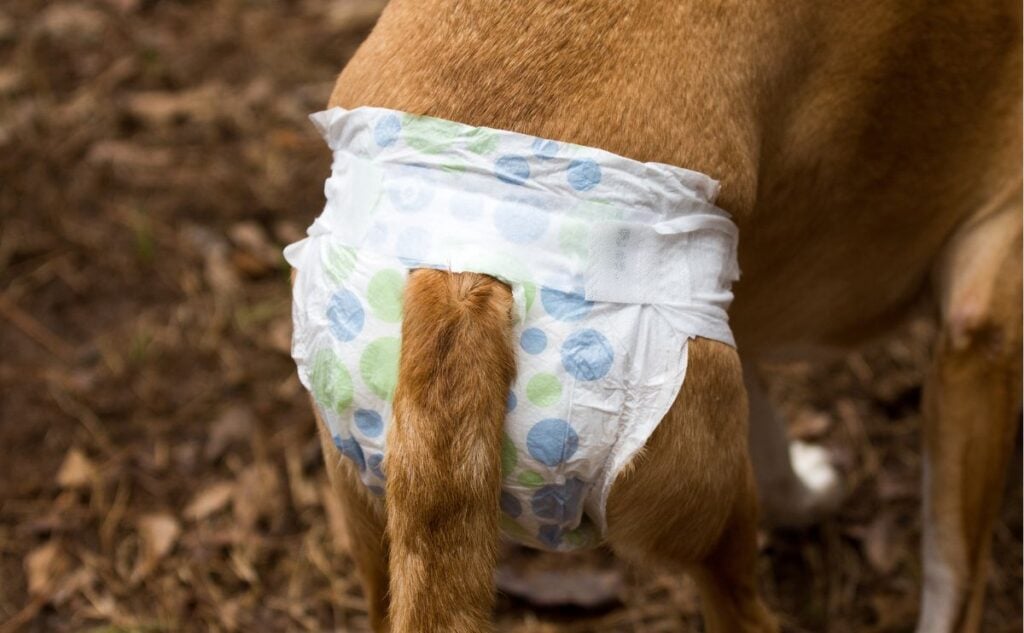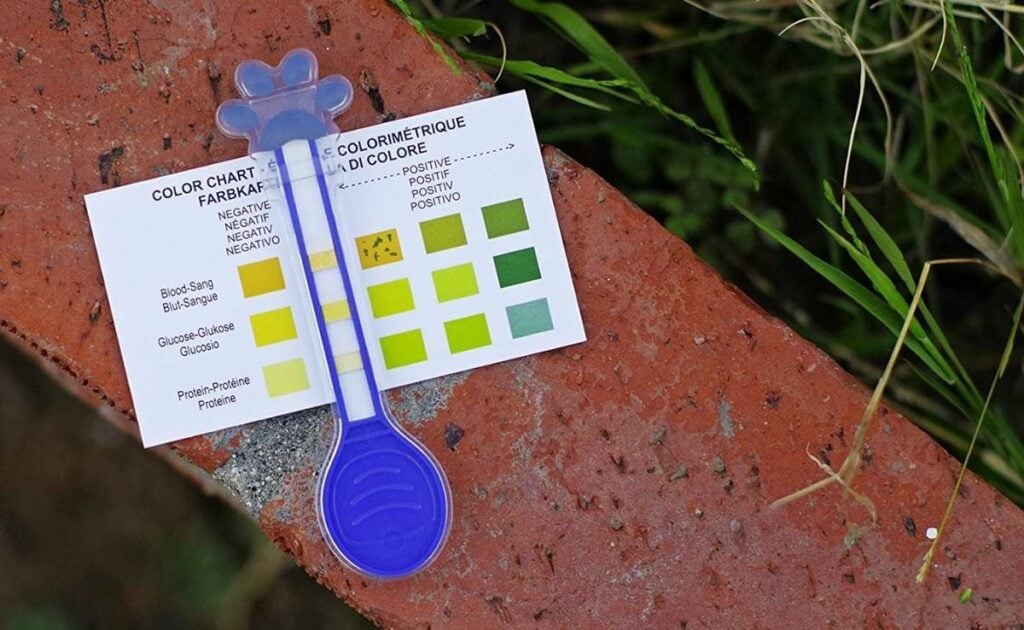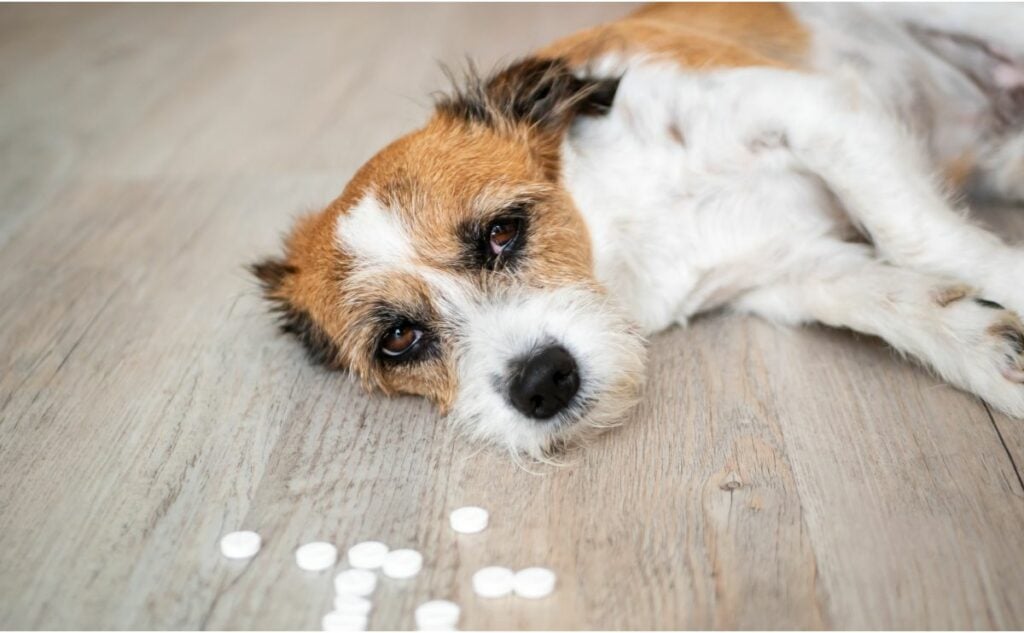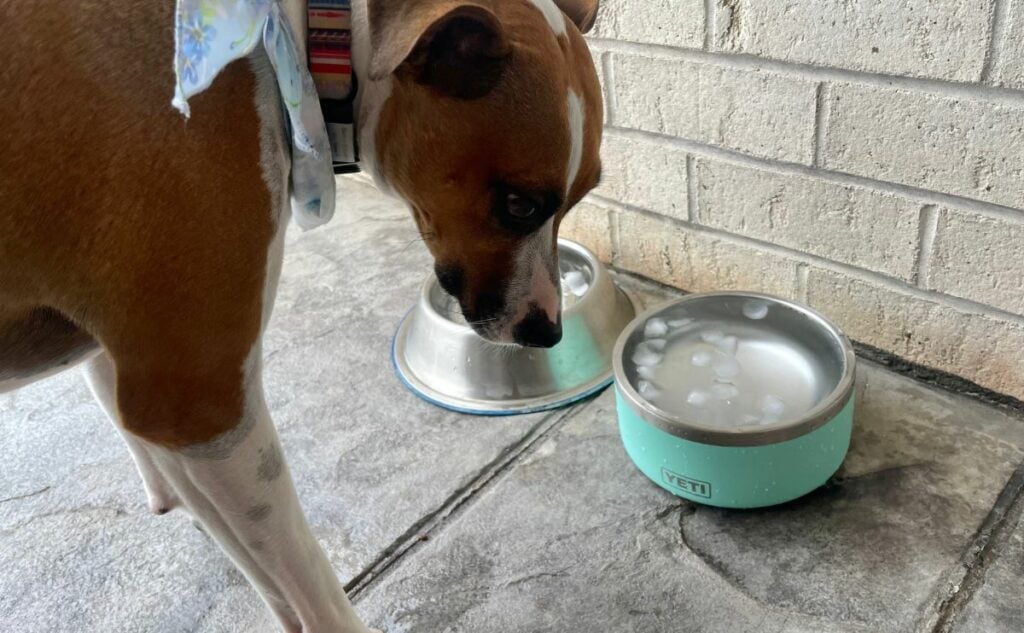6 Home Remedies For Dog UTIs
When you purchase through links on our site, we may earn a commission. Here’s how it works.
If you’ve ever had a urinary tract infection (UTI), you know how painful they can be. For me, I’ve been there and done that, and quick treatment is key. Unfortunately, UTIs are quite common in dogs, and some suffer recurring infections throughout their lifetime.
Table of Contents
We all hate watching our canine companions suffer with any kind of illness. So it’s understandable that you want to relieve your pup’s discomfort. In some cases, it may be okay to use home remedies for a dog UTI, and I’ll shed light on which ones may be safe and effective for treatment and prevention. However, these at-home remedies aren’t meant to replace veterinary care.
UTIs usually require prompt veterinary treatment to resolve them. Without treatment, a UTI can quickly turn into a serious and even life-threatening emergency, so if you suspect your dog has a UTI or bladder infection that’s not getting better quickly, you must contact your vet as soon as possible.

What Are UTIs In Dogs?
Urinary tract infections (UTIs) are usually caused by harmful bacteria (from feces or debris) that enter the urinary tract from the rectum, skin, or hair near the external urethral opening. This bacteria travels up through the urethra to the bladder.
According to Merck Veterinary Manual, bacterial UTIs are the most common infectious disease of dogs, affecting 14% of all dogs. They’re more frequent in females, older dogs, and those with underlying health problems, such as obesity, diabetes, Cushing’s disease, kidney disease, bladder stones, and those with compromised immune systems. Anatomical abnormalities, such as females with excessive vulvar tissue, can also cause frequent UTIs.
Any breed can develop a UTI; however, some breeds who are genetically predisposed to bladder stones are at a higher risk for recurring infections (although UTIs can also cause bladder stones). These breeds include Dalmatians, Miniature Schnauzers, Bulldogs, Yorkshire Terriers, Shih Tzus, Bichon Frise, and more.
Symptoms Of UTIs In Dogs
What are the signs of a UTI in dogs? Common symptoms include:
- Needing to urinate more frequently
- Straining or crying out when urinating
- Urine with a strong odor
- Dribbling or only passing small amounts of urine
- Accidents in the house
- Increased thirst
- Loss of appetite
- Lethargy
- Urine that’s bloody, cloudy, or both
- Licking the genital area
- Fever
At-Home Dog Urinalysis Testing
Did you know you may be able to find out if your dog has a UTI without visiting the vet? Try one of these dog urinalysis tests, which may be able to detect urinary tract infections, bladder infections, kidney failure, high glucose levels, and more in your pup. This could help you save both time and money at the vet, particularly if your dog is susceptible to recurring UTIs. If the results indicate a problem, you can then reach out to your vet for guidance on the next steps for treatment.

6 Home Remedies For Dog UTIs
Urinary tract and bladder infections can quickly lead to severe and even life-threatening health problems if not treated with the proper medicine (usually antibiotics and prescription painkillers). If you’re wondering how to treat a dog’s bladder infection at home, please don’t. It’s crucial for you to first contact your veterinarian before you rely on any home remedy for your dog. Some consequences of untreated UTIs include extreme pain, bladder stones, acute kidney disease or failure, chronic urinary incontinence, sepsis, and other complications.

See our comprehensive article on dog UTIs to learn more about how veterinarians diagnose and treat these infections. The normal course of vet treatment is prescription antibiotics coupled with pain relievers.
The following natural remedies for UTIs in dogs are only recommended as supplementary treatments to your vet’s prescribed medication. They may help ease symptoms and speed up the recovery process. Again, always consult your vet before using any at-home remedies for dog UTIs.
1. Increase Your Dog’s Water Intake
Providing your pup with plenty of clean, fresh water is important to flush out the bad bacteria in their urinary tract. Place extra water bowls around the house. You may want to consider getting a dog water fountain to encourage them to drink more frequently. Switch your dog to canned or fresh food, which has a higher water content than dry food, or add water to your dog’s dry food.

2. D-Mannose
D-mannose is a simple sugar that has been studied for the treatment and prevention of urinary tract infections caused by Escherichia coli (E. coli). D-mannose works by preventing E coli from attaching to the urinary tract. A scientific review in the American Holitic Veterinary Medical Association (AHVMA) Journal, concluded that D-mannose may support the treatment of acute UTIs, but it’s use as a preventative measure has more evidence.
The easist way to administer D-mannose is through a supplement, like Mighty Petz MAX Urinary Tract soft chews, which includes D-mannose, cranberry, grapefruit seed extract, probiotics, and turkey broth. Alternatively, you can mix in pure D-mannose powder with your pup’s food or water.
3. Cranberries
Cranberries contain proanthocyanidins, which can inhibit the adhesion of E coli to the wall of the urinary tract (similar to D-mannose). It’s benefits for human UTIs is well documented, but evidence is lacking on its use for dog UTIs. Still, based on its efficacy in humans, adding cranberries to your pup’s diet may help.

You can add about 2 teaspoons of chopped cranberries to your dog’s food twice a day or give your pup a supplement. The Mighty Max product I mentioned above contains cranberry. Additionally, many owners find Coco and Luna’s Urinary Tract cranberry supplement very effective.
4. Probiotics
Probiotics have incredible health benefits for dogs, such as promoting digestive and immune health. According to the Cornell College of Veterinary Medicine, probiotics may also be helpful in treating UTIs in dogs. Probiotics contain live cultures of good bacteria that can help fight off the bad bacteria in your pup. It’s important to get a canine-specific probiotic that contains the ideal bacterial strains for dogs. I recommend Vital Planet Flora Dog Probiotic as a top choice but see our review of the best dog probiotics for all of our recommendations.
5. DL-Methionine
Struvite urinary crystals form when the urine is too alkaline. DL-methionine is a natural amino acid that some vets recommend to aid in acidifying dogs’ and cats’ urine, which in turn helps inhibit the formation of struvite crystal bladder stones, UTIs, and bladder infections. Usually, veterinarians prescribe DL-methionine in certain cases, or they may recommend an over-the-counter supplement, like Vetoquinol Methigel.
5. Holistic Herbal/Plant Remedies
Holistic veterinarians often recommend herbal therapies for many health conditions in dogs, including to reduce inflammation and pain from urinary infections. Typically, the preferred solution is a blend of several different botanicals, like you’ll find in Pet Wellbeing Urinary Gold or PET TAO Soothe Bladder. Some common holistic blends include cranberry and such ingredients as:
- Juniper berry – increases urination and helps the body flush out uric acid
- Marshmallow root – a natural anti-inflammatory that soothes inflamed tissues
- Uva ursi – an astringent that eases swelling of the urinary tract and bladder
- Parsley leaf – a diuretic that can aid in the elimination of waste and has antiseptic properties
How To Prevent UTIs
While it’s not possible to prevent all UTIs, there are several things you can do to help. Many of the home remedies I mentioned above can also work for prevention.
- Drinking plenty of water is crucial.
- Make sure to take your dog out to urinate so they’re not “holding it in” for too long. A healthy adult dog typically needs to urinate every 6-8 hours.
- Don’t let your pup lick their genital area.
- Regularly clean your dog’s genital and rectal areas using antibacterial wipes. I recommend Vetnique Labs Glandex Dog Wipes, a highly-rated product.
- With your vet’s approval, give your pup a daily supplement of probiotics and/or a urinary health supplement (see above).
- For some dogs, a diet specially formulated to alter urine acidity and prevent stone formation can help reduce the inflammation that can lead to UTIs in dogs.
- If you have an older pup or one who’s prone to frequent UTIs, it can help to check their urinary health with at-home urine testing strips.
When Having Pet Insurance Is Crucial
Many conditions simply can’t be adequately treated with home remedies and require proper veterinarian diagnosis and treatment. And yes, this can get quite expensive. For example, bladder stones can cost up to $3,000 for surgical removal.
Investing in pet insurance is a smart way to protect your finances and ensure your dog gets the ideal vet care. Pet insurance can cover a significant portion of your vet bills. Just be sure to sign up your pup before health issues appear; otherwise, it’s considered a pre-existing condition, which likely won’t be covered. See our experts’ reviews of the best pet insurance providers to learn more.




